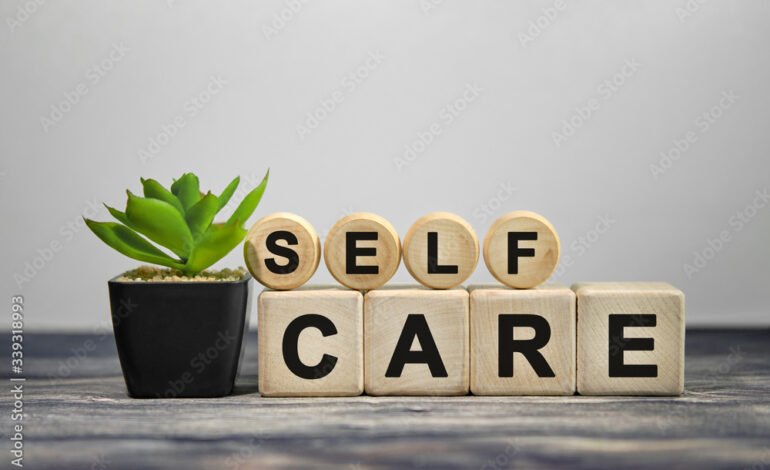
All You Need to Know About Healthy Relationships
- All You Need to Know About Healthy Relationships
- The Effects of Common Relationship Types on Mental Health
- Identify the Green Flags: Signs of a Healthy Relationship
- Signs Of A Toxic Relationship
- How to Know if You Have Relationship Anxiety?
- Tips to Become Emotionally Responsible
- Strengthening Relationships: Discover The Power Of Relationship Therapy
- Finding Harmony: Relationship Counseling in Reno
- Embrace The Journey Towards Emotional Well-Being
All You Need to Know About Healthy Relationships
Building and maintaining healthy relationships is a cornerstone of a fulfilling life. Whether it’s a romantic partnership, a friendship, or familial bonds, the quality of our relationships significantly impacts our emotional well-being and happiness.
Here, we’ll explore what constitutes a healthy relationship, the importance of communication and trust, and practical tips to nurture and strengthen your connections with others. By understanding and applying these principles, you can create lasting, meaningful relationships that enrich your life and bring joy and stability.
The Effects of Common Relationship Types on Mental Health
Throughout life, we form various relationships, such as family, friends, and romantic partners, each of which can have significant positive or negative impacts. Healthy relationships provide joy, support, and companionship but come with challenges that require effort and consideration.
Knowing the different types of relationships, their dynamics, and the necessary support can help one make better mental and emotional health choices. But first, let’s define a relationship.
What Does “Relationship” Mean?
The term “relationship” denotes the bond between two or more individuals. These connections can manifest in various forms throughout our lives, characterized by a complex and evolving web of interactions. Renowned psychoanalysts such as Sigmund Freud and Carl Jung emphasized the profound impact relationships can have on our well-being, shaping our happiness or distress.
Types of Relationships
It is crucial to recognize the various types of relationships we engage in. These relationships can range from familial and spiritual bonds to romantic partnerships.
Family Relationships
Families are our first and most significant bonds, shaping our behaviours, values, and beliefs from birth. These connections offer support, love, and security, but unresolved conflicts can cause distress and trauma.
Friendships
Friendships are built on shared interests and experiences, offering comfort, trust, and understanding. They range from casual acquaintances to close confidants. Unlike family, we choose friends, giving us unique autonomy. Friendships are vital for mental health, helping manage stress, offering support, and allowing us to be our true selves.
Acquaintances
Acquaintances are defined by casual interactions with people we know but lack a deep connection. These relationships often form through work or other settings where people converge. While acquaintances offer a sense of social connectedness and hold value in many aspects, they don’t demand strong commitments or bonds. Consequently, they can be easily let go when the connection fades—as long as it’s done respectfully.
Romantic Relationships
Romantic relationships, involving deep emotional connections and physical attraction, significantly impact our happiness and mental health. These bonds are built on passion, understanding, commitment, and mutual respect. Today, romantic relationships range from monogamous to polyamorous and open forms.
When healthy and robust, these connections provide a sense of belonging, happiness, and contentment. However, unresolved issues or conflicts can lead to significant suffering for those involved. Regardless of the type, it is essential to recognize the importance of each relationship, understanding that every bond offers unique benefits and contributes to our overall well-being.
Identify the Green Flags: Signs of a Healthy Relationship
As we navigate through life, we often bear wounds from our past, including generational traumas that affect our relationships. Acknowledging and healing these wounds is crucial for fostering healthy connections with others. This is particularly important for those in the Reno area seeking therapy to alleviate stress, depression, and anxiety.
Importance of Identifying The Signs of Healthy Relationships
Recognizing the signs of a healthy relationship is essential for anyone seeking to cultivate meaningful connections. By understanding these indicators, we can break free from toxic relationship patterns and nurture healthier bonds with others. This awareness empowers us to make informed decisions and build relationships that enhance our overall well-being.
Communication
Effective communication is the cornerstone of a healthy relationship. It encompasses active listening, honest and respectful self-expression, and maintaining an open dialogue, whether through relationship therapy or other channels. In thriving relationships, partners feel at ease sharing their thoughts, feelings, and needs, fostering deeper understanding, empathy, and connection.
Trust
Trust is the cornerstone of any healthy relationship. It builds gradually as partners consistently exhibit reliability, honesty, and integrity. In a trusting relationship, individuals feel secure, knowing they can depend on each other and share their vulnerabilities without fear of judgment or betrayal.
Empathy
Empathy is the capacity to understand and share another person’s feelings. In a healthy relationship, both partners aim to be empathetic, validating each other’s emotions and offering support. Cultivating empathy deepens connections and encourages mutual understanding, creating a safe and nurturing environment.
Independence
Preserving individuality within a relationship is crucial for its well-being. Healthy relationships empower partners to follow their interests, achieve their goals, and nurture personal growth. Promoting independence cultivates autonomy, boosts self-esteem, and enhances overall satisfaction within the relationship.
Shared Values
Shared values form the bedrock of a healthy relationship. When partners align on core beliefs, principles, and goals, they can face life’s challenges with harmony and mutual understanding. This alignment fosters cooperation and strengthens the overall bond.
Intimacy
Intimacy involves emotional, physical, and intellectual closeness. In healthy relationships, partners feel at ease expressing affection, engaging in open and deep conversations, and nurturing a profound emotional bond. This intimacy strengthens their connection, fostering a sense of security and fulfillment.
Conflict Resolution
Conflict is inevitable in any relationship, yet its handling defines the partnership’s health. Healthy relationships prioritize constructive conflict resolution through open communication, active listening, and a commitment to finding mutually beneficial solutions.
Mutual Respect
Mutual respect is the foundation of a healthy relationship. It means valuing each other’s opinions, honoring boundaries, and recognizing autonomy. In a respectful relationship, partners treat each other with kindness, consideration, and equality, creating a nurturing and supportive dynamic.
Signs Of A Toxic Relationship
Relationships can offer some of the most enriching experiences in our lives, making us feel loved, supported, and valued. However, not all relationships are equal.
Most Common Signs Of A Toxic Relationship
1.Control
In a toxic relationship, one partner consistently imposes their will, viewpoints, and decisions on the other. The controlled individual often feels powerless, with no influence over the direction of the relationship.
2.Emotional abuse
The toxic partner aims to dominate and belittle their significant other, frequently resorting to verbal abuse, gaslighting, and other emotionally damaging behaviors.
3.Isolation
Toxic partners often attempt to isolate their significant other from friends and family, fostering complete dependency on the relationship. This strategy grants the toxic partner greater control over its course and direction.
4.Insecurity
In a detrimental relationship, the controlled individual may feel uncertain about themselves and their place. The toxic partner provides reasons for self-doubt, leading the controlled person into a spiral of worthlessness and insecurity.
5.Limited communication
A healthy relationship thrives on trust and communication. In contrast, in an unhealthy relationship, toxic partners may shut down communication channels, leaving the other party with no outlet for their grievances, concerns, or needs.
Tips For Identifying A Toxic Relationship
- Trust your instincts: If something feels off in the relationship or certain behaviors raise red flags, it is likely a toxic relationship.
- Identify their behavior: Negative behavior patterns often manifest as manipulation, control, and emotional abuse. If any of these traits are present, it signifies a toxic relationship.
- Look out for any warning signs: If any of the signs mentioned earlier are present, it indicates an unhealthy relationship, and you should seek help.
How to Know if You Have Relationship Anxiety?
Dealing with relationship anxiety can be a daunting experience. It’s normal to feel anxious about your relationship occasionally. However, when this anxiety becomes persistent, it can result in stress, depression, and other mental health issues.
What to Look Out for in a Relationship?
Relationship anxiety can present itself in various forms, making it essential to recognize its signs. Here are some indicators that you might be experiencing relationship anxiety:
- Overthinking: Continuously questioning the relationship and its potential success.
- A constant need for reassurance: Frequently seeking affirmation from your partner about their love for you.
- Physical symptoms: Anxiety and stress can manifest as headaches, fatigue, or insomnia.
- Fear of commitment: Hesitancy or avoidance when it comes to committing to the relationship.
- Jealousy and insecurity: Feeling jealous of your partner’s interactions with others and uncertain about the relationship’s future.
Effects of Relationship Anxiety
Relationship anxiety can profoundly affect your mental and physical well-being, leading to depression, heightened stress, and physical symptoms like headaches and stomach issues. It can also strain your relationship, causing arguments, reduced intimacy, and potentially a breakup. If left untreated, this anxiety can have long-term consequences on both your mental health and relationships.
Tips to Become Emotionally Responsible
Emotional responsibility is vital for personal development and nurturing healthy relationships. It involves recognizing, comprehending, and effectively managing one’s emotions. Here are some tips that can help you be emotionally responsible.
Understand Your Emotions
Recognize and Identify Your Emotions
The first step toward emotional responsibility is recognizing and identifying your emotions. Take the time to observe and label your feelings as they emerge. Are you experiencing happiness, sadness, anger, or anxiety? By naming your emotions, you gain a clearer understanding of your internal experiences.
Understand the Root Causes of Your Emotions
After identifying your emotions, strive to comprehend their root causes. What triggered these feelings? Are they rooted in past experiences, current circumstances, or unmet needs? Understanding the origins of your emotions enables you to address them more effectively.
Express Your Emotions in a Healthy Way
Learning to express your emotions in a healthy and constructive manner is crucial. Instead of suppressing or lashing out, find appropriate outlets to communicate your feelings. This might involve talking to a trusted friend, journaling, or engaging in creative activities that help you process your emotions.
Practice Self-Awareness
Regularly Reflect on Your Thoughts, Feelings, and Behaviors
Self-awareness is pivotal for emotional responsibility. Cultivate the habit of regularly reflecting on your thoughts, feelings, and behaviors. Take a step back to objectively observe your patterns and reactions. This introspection will help you pinpoint areas where you can manage your emotions more effectively.
Observe How Your Emotions Influence Your Decision-Making
Notice how your emotions shape your decisions. Do you make impulsive choices when angry or upset? Do you shy away from certain situations due to fear or anxiety? By acknowledging the impact of your emotions on your decisions, you can make more deliberate and rational choices.
Develop the Ability to Pause and Respond Rather Than React
Emotional responsibility involves mastering the ability to pause before reacting. When confronted with a challenging situation or intense emotions, take a moment to breathe and assess your feelings. Creating a gap between the trigger and your response allows you to react more thoughtfully and with greater control.
Take Responsibility for Your Emotions
Acknowledge That Your Emotions Are Your Own
It’s essential to acknowledge that your emotions are your responsibility. While external factors can influence your feelings, ultimately, you are the one in control of how you respond to them. Embrace ownership of your emotional experiences and avoid placing blame on others.
Avoid Blaming Others for How You Feel
Emotional responsibility means refraining from blaming others for how you feel. Instead of pointing fingers or playing the victim, focus on understanding and managing your emotions. Remember that while others’ actions may trigger certain feelings, it’s up to you to decide how to handle them.
Commit to Managing Your Emotions Effectively
Make a conscious commitment to managing your emotions effectively. This involves taking proactive steps to regulate your feelings, such as practicing self-care, seeking support when needed, and developing healthy coping mechanisms. By prioritizing emotional management, you become more resilient and better equipped to handle life’s challenges.
Develop Emotional Regulation Strategies
Master Techniques Like Deep Breathing, Meditation, and Journaling
To effectively regulate your emotions, consider adopting various techniques. Deep breathing exercises can calm your mind and body during overwhelming moments. Meditation fosters inner peace and clarity, while journaling offers a safe space to articulate and process your emotions.
Embrace Mindfulness to Stay Present and Grounded
Mindfulness is a powerful tool for managing emotions. By practicing mindfulness, you learn to stay present and observe your thoughts and feelings without judgment. This practice helps you maintain a sense of groundedness, preventing you from being overwhelmed by intense emotions.
Develop Coping Mechanisms for Difficult Emotions
Cultivate a toolkit of coping mechanisms to manage difficult emotions as they arise. This might include engaging in physical exercise, practicing relaxation techniques, seeking social support, or indulging in activities that bring joy and comfort. Having a diverse range of coping strategies equips you to navigate emotional challenges with greater efficacy.
Communicate Effectively
Express Your Emotions Clearly and Assertively
Effective communication is essential for emotional responsibility. Learn to articulate your emotions with clarity and assertiveness, using “I” statements to convey your feelings and needs. Avoid blaming or attacking others; instead, focus on expressing yourself nonjudgmentally and respectfully.
Listen Actively to Understand Others’ Perspectives
Emotional responsibility also involves being an attentive listener. Practice active listening to truly understand others’ perspectives and emotions. Give them your full attention, ask clarifying questions, and show empathy. By creating a safe and supportive space for open communication, you foster healthier relationships and emotional connections.
Engage in Constructive Dialogues to Resolve Conflicts
When conflicts arise, approach them with a constructive mindset. Engage in dialogues aimed at understanding each other’s viewpoints and finding mutually beneficial solutions. Focus on the issues rather than personal attacks, and be willing to compromise and find common ground. Constructive communication not only resolves conflicts but also strengthens emotional bonds.
Practice Self-Care
Prioritize Your Physical and Mental Well-Being
Self-care is a fundamental aspect of emotional responsibility. Prioritize both your physical and mental health by engaging in activities that promote relaxation, stress relief, and overall well-being. This can include regular exercise, a balanced diet, sufficient sleep, and time for hobbies and leisure.
Engage in Emotionally Nourishing Activities
Identify and incorporate activities that nourish your emotional needs into your daily routine. This might involve pursuing creative outlets, spending time in nature, engaging in self-reflection, or participating in fulfilling activities. By nurturing your emotional well-being, you build resilience and enhance your ability to manage emotions effectively.
Cultivate a Supportive Network
Building a supportive network is crucial for maintaining emotional responsibility. Surround yourself with individuals who uplift and encourage you, providing a safe space to express your emotions. Seek relationships founded on mutual respect, trust, and emotional support. A strong support system can help you navigate challenges and maintain emotional well-being.
Strengthening Relationships: Discover The Power Of Relationship Therapy
Imagine waking up each day with a heavy weight on your chest, burdened by unresolved emotions and strained relationships. The challenges of daily life, overwhelming stress, and the constant battle with anxiety and depression can significantly impact our overall well-being.
Together, we’ll explore the world of relationship therapy and uncover how it can enhance your life.
What Is Relationship Therapy?
Relationship therapy, also known as couples therapy or marriage counseling, is a specialized field dedicated to strengthening and enhancing relationships. It offers a safe and supportive environment where individuals, couples, families, and even children and teens can explore and resolve their emotional challenges. The primary goals of relationship therapy are to improve communication, foster understanding, and promote healthy behaviors while navigating the complexities of human connections.
Skills of a Relationship Therapist
A relationship therapist brings a unique skill set dedicated to navigating the complexities of human relationships. These experts are trained to listen with empathy, grasp various perspectives, and offer impartial guidance. Utilizing evidence-based methods, they enhance communication, resolve conflicts, and foster emotional healing. By cultivating a non-judgmental atmosphere, relationship therapists empower individuals and couples to strengthen their connections and acquire the tools for lasting change.
Relationship Therapy Techniques
Relationship therapy employs a variety of effective techniques to address specific issues and foster growth. Couples frequently benefit from interventions such as Emotionally Focused Therapy (EFT), which aims to deepen emotional bonds and restore trust. Cognitive Behavioral Therapy (CBT) helps individuals identify and change negative thought patterns and behaviors that affect relationships. Therapists may also utilize methods like mindfulness practices, psychodynamic therapy, and solution-focused therapy, tailored to each client’s unique needs and goals.
When To Seek Relationship Therapy?
Recognizing the need for relationship therapy is vital for cultivating a healthy and fulfilling life. If you find yourself caught in recurring conflicts, facing communication breakdowns, or feeling distant and disconnected from your partner, relationship therapy can offer the necessary support and guidance to overcome these challenges.
Seeking help early is essential, as addressing issues promptly enhances the likelihood of resolving them successfully and prevents the relationship from deteriorating further.
Finding Harmony: Relationship Counseling in Reno
When life’s pressures begin to impact our emotional well-being, seeking solace and support becomes essential. In today’s fast-paced world, stress, depression, and anxiety are increasingly common, affecting both men and women.
While not everyone requires in-patient mental health care or suffers from severe conditions, many can benefit from therapy to find relief and restore balance in life.
If you desire healthier relationships, improved emotional well-being, and a renewed sense of self, relationship counseling might be the solution you need.
Signs That You May Need Relationship Counseling
Recognizing the signs that indicate the need for relationship counseling is the first step toward healing and personal growth. If you encounter any of the following issues, it might be time to seek professional help:
- Persistent conflicts
- Lack of communication
- Emotional distance
- Eroding trust in your relationship
Professional guidance could be the key to resolving these challenges.
Benefits of Relationship Counseling
Relationship counseling offers numerous benefits for those aiming to enhance their emotional well-being and strengthen their connections. This transformative journey can bring newfound clarity, personal growth, and the tools necessary to build healthier relationships grounded in trust, respect, and mutual support.
At Mind and Body Counseling Associates, our skilled and empathetic therapists assist you in understanding yourself and your partner better. Through effective communication strategies and coping mechanisms, you can manage stress, depression, and anxiety more effectively, fostering a more harmonious and fulfilling relationship.
Embrace The Journey Towards Emotional Well-Being
Investing in relationship therapy can be a pivotal step towards achieving emotional balance and nurturing healthier relationships. Understanding the complexities of human connections and recognizing when to seek professional guidance are essential components for fostering a supportive and harmonious life. At Mind and Body Counseling Associates, we are dedicated to guiding you through this transformative journey, offering tailored techniques and empathetic support. By embracing relationship therapy, you can unlock the potential for personal growth, improve your mental health, and cultivate meaningful, lasting connections. Take the courageous step today and embark on the path to a more fulfilling and balanced life.





